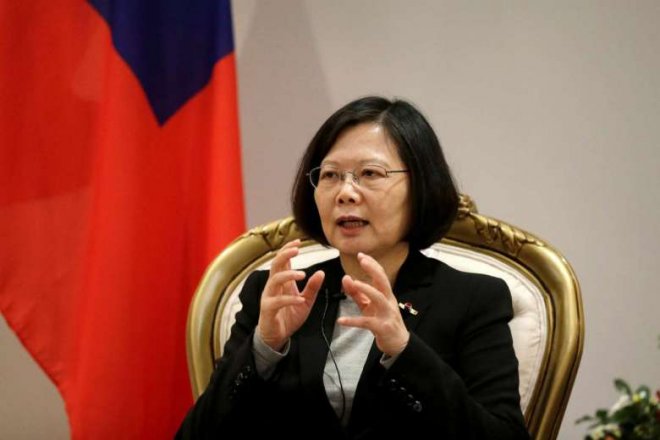
Beijing toughened its stance against Taiwan after President Tsai Ing-wen's controversial telephone call with US president-elect Donald Trump last week, saying the US should not allow the Taiwanese leader to transit through its airports.
Upping the ante in the worsening diplomatic tussle, China formally asked the US to block Tsai from making a transit in New York next month when she travels to Central America. Tsai is scheduled to visit Guatemala, one of its diplomatic allies in Central America, during Jan. 11-12,
"As for the issue you raise of a 'transit' in the United States by the leader of the Taiwan region, her real aim is self-evident," China's foreign ministry said in a statement.
China hopes the US "does not allow her transit, and does not send any wrong signals to 'Taiwan independence' forces," it added, according to Taipei Times.
Meanwhile Tsai's office said media reports about the trip were "excessive speculation." Taiwan is left with a small clutch of diplomatic allies after most countries switched relations to the People's Republic of China. The US established diplomatic ties with Beijing in 1979, but it has continued to keep unofficial channels of communication with Taipei.
Taiwanese leaders routinely visit its diplomatic allies in Central America, and use stopovers in the US to hold meetings with American lawmakers who support it.
No US president or president elect has held official talks with a Taiwanese leader since Washington adopted the One-China policy in 1979. China considers self ruling Taiwan as a renegade province and hasn't stood down on the possibility of using force to annex the island.
China says Trump's move undermined Washington's stated commitment to the One-China policy. Tsai's Democratic Progressive Party (DPP) has a charter that includes a clause promoting "a sovereign and independent Republic of Taiwan". Tsai and her party have refused to accept the '1992 consensus' which was agreed by a China-friendly Nationalist government, which says Taiwan is an integral part of the mainland.








